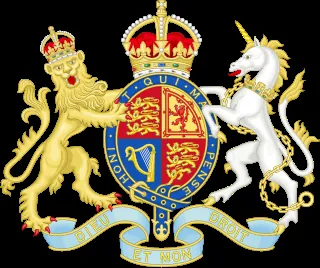High Court of Justice
The High Court of Justice in London, known properly as His Majesty's High Court of Justice in England, together with the Court of Appeal and the Crown Court, are the Senior Courts of England and Wales. Its name is abbreviated as EWHC for legal citation purposes.

Some of the key events about High Court of Justice
- 1649Oversaw the trial and execution of King Charles I, a controversial act seen as regicide by many
- 1685Presided over the Bloody Assizes, resulting in harsh punishments and executions for participants in the Monmouth Rebellion
- 1834Ruled against the release of James Somerset, initially upholding the legality of slavery in England
- 1873Established as a unified court system for England and Wales, combining several existing courts
- 1875Began operating under the Judicature Acts, streamlining the administration of justice
- 1882Introduced the system of binding precedent, enhancing legal consistency
- 1916Upheld the conviction of Sir Roger Casement for treason, leading to his execution despite questions about the evidence
- 1920Sentenced several Irish republicans to death during the Irish War of Independence, fueling tensions
- 1932Established the Commercial Court, specializing in complex business disputes
- 1950Ruled against decriminalizing homosexuality, maintaining discriminatory laws
- 1956Created the Restrictive Practices Court to address anti-competitive business practices
- 1970Formed the Family Division, focusing on family law matters
- 1971Introduced the practice of issuing practice directions, improving court procedures
- 1976Dismissed the case against suspected IRA bombers, later proven to be a miscarriage of justice
- 1981Established the Admiralty Court, specializing in maritime and shipping law
- 1989Upheld the ban on the book "Spycatcher," seen as an infringement on freedom of speech
- 1998Implemented the Civil Procedure Rules, reforming civil litigation processes
- 2001Ruled against terminally ill patients' right to assisted suicide, sparking ethical debates
- 2009Created the Administrative Court, centralizing judicial review proceedings
- 2019Approved the use of facial recognition technology by police, raising privacy concerns
Disclaimer: This material is written based on information taken from open sources, including Wikipedia, news media, podcasts, and other public sources.































